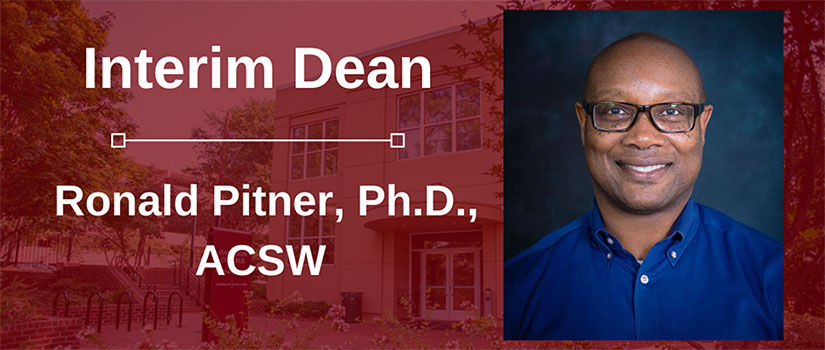June 1, 2020
"[Our] silence will not protect [us]." -- Audre Lorde
The past few months have been quite challenging for our nation. We are in the midst of a pandemic, which has claimed the lives of over 100,000 Americans, many of whom were Black and Brown people. Indeed, many members of our community are experiencing this pandemic in ways that are inseparable from their race and ethnicity. COVID-19 has shined a spotlight on the many disparities in the US: racial disparities, class disparities, gender disparities, sexual identity disparities, age disparities and ability disparities to name just a few. One of the core tenets of social work is the promotion of social justice and social change on behalf of disenfranchised communities. Thus, as social workers, we cannot be silent about COVID-19 related disparities. We are charged with seeing and acknowledging such disparities. We are charged with engaging others in critical dialogue about them. Indeed, we are charged to advocate for changes in systems that create and re-inscribe such disparities.
The past few months have also shined a spotlight on a very familiar pandemic – racism. The tragic deaths of George Floyd, Ahmaud Arbery and Breonna Taylor are all examples of overt forms of racism against people of color. For many who have witnessed these news stories and expressed personal feelings about these tragedies, I hear you; I know that your pain is real and profound.
Similar to COVID-19, many members of our community are experiencing these tragedies in ways that are inseparable from their race and ethnicity. We should all remain cognizant of this reality. Unlike COVID-19, which is a new virus, these tragedies involving racism are not new. In fact, they are what Banaji, who is a leading researcher on implicit bias, calls “old fashion” racism. For decades, these stories have been highlighted in the news. They have ignited protests and riots. They have sparked calls for systemic change. They never seem to have adequate resolution. And we find ourselves witnessing and discussing these tragedies repeatedly. Yet for social workers, the charge is clear. We cannot be silent about these deaths involving racism. We are charged to see and acknowledge racism in such cases. We are charged to engage others in a critical dialogue about the role that race plays in these cases. Yes, we are charged to advocate for system-level changes.
An interesting point about these pandemics is that the media is currently shining a spotlight on both COVID-19 and on racism. This presents an opportunity for social workers to actively strive to fulfill key tenets of our profession. In our college, we must continue to address major social problems, especially those that diminish our society so tragically. I challenge our community to reflect on ways that we can foster such advocacy in our college.
In the coming days, I will be meeting with our associate dean for diversity, equity, and inclusion, along with others, to discuss ways that the College of Social Work can focus on such issues. If you have suggestions about programming, continuing education classes that the college can offer to address these issues, or anything else regarding this matter, please do not hesitate to send them in.
Thanks and kind regards,
Ronald Pitner, Ph.D, ACSW
Interim Dean
Associate Professor
I. DeQuincey Newman Endowed Chair in Peace and Social Justice
Director of the Newman Institute for Peace and Social Justice
College of Social Work
University of South Carolina
rpitner@sc.edu
803-777-6797
